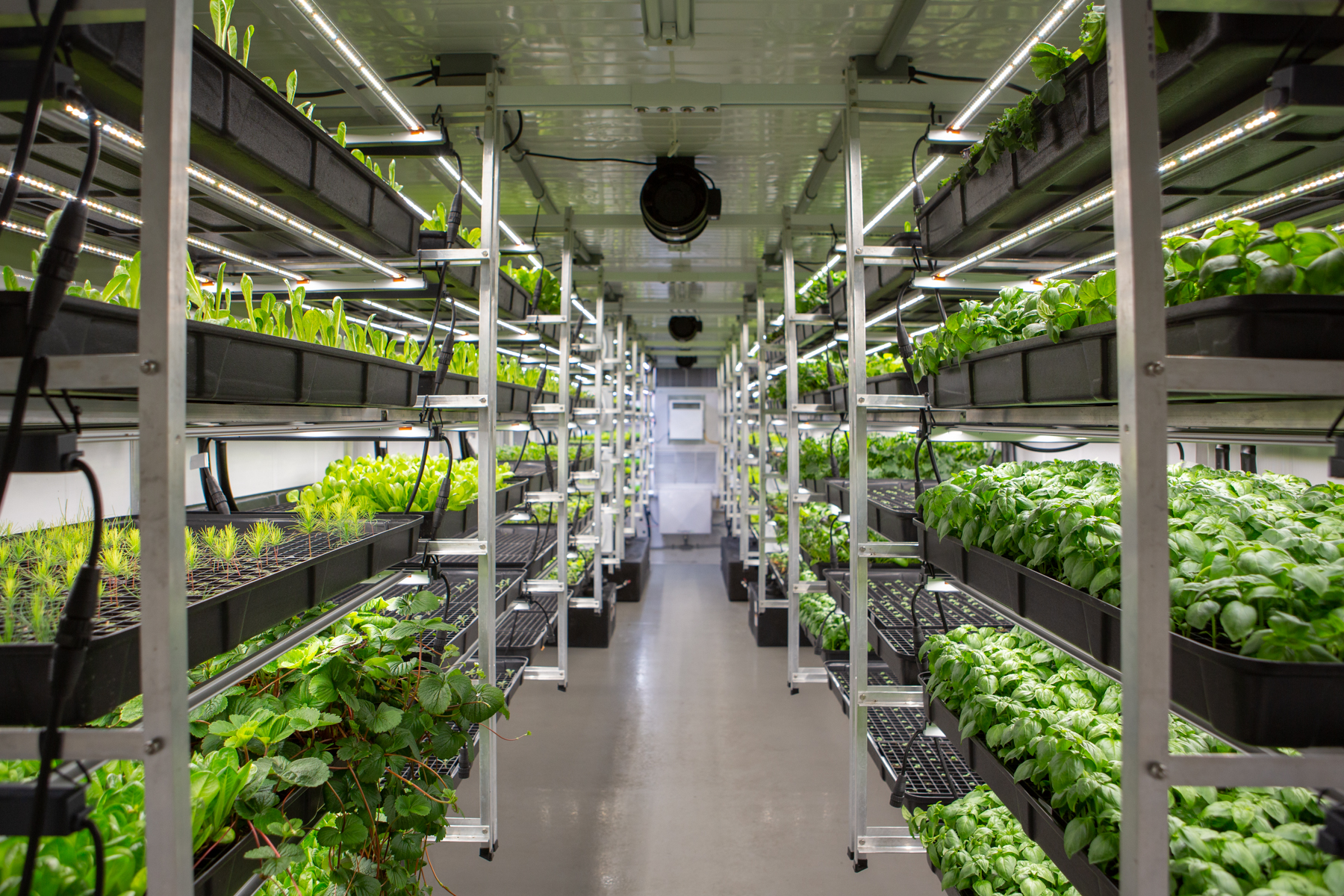Auburn University Expands Food & Agriculture Innovation with Advanced Vertical Farming Technology from AmplifiedAg, Steering Indoor-Grown Produce in New Direction
Auburn University Expands Food & Agriculture Innovation with Advanced Vertical Farming Technology from AmplifiedAg
High-tech container farms will be utilized by students to grow fresh leafy greens for campus dining, propagate plants for row crop and greenhouse production, and controlled environment agriculture research
CHARLESTON, SC, May 13, 2025: The Auburn University College of Agriculture has significantly expanded its Transformation Garden and FoodU program with the integration of an advanced container farming suite from indoor agriculture leader, AmplifiedAg. This expansion enhances Auburn’s 16-acre Transformation Garden research and education facility by incorporating cutting-edge vertical farming systems to support multidisciplinary agricultural education, research, and food production initiatives.

The newly installed container farm infrastructure comprises three AmplifiedAg container farms: one AmpVPS (Vertical Propagation System) unit, two NFT (Nutrient Film Technique) container farms optimized for leafy green production, and a fourth unit repurposed as a food-safe cold storage facility. This comprehensive setup enables students to engage in real-world vertical farming systems for both plant propagation and full-cycle crop production.
“We’re honored to be partners with Auburn University’s FoodU and Transformation Garden. These progressive programs are designed to immerse students in a fully integrated, industry-relevant agricultural ecosystem—combining plant science, technology, supply chain logistics, and food systems management,” said David Flynn, CEO of AmplifiedAg.
The initial operational focus of the container farm suite is to produce a wide variety of leafy greens and lettuces to sell back into Auburn University’s campus dining services. This FoodU farm-to-plate initiative creates a closed loop, hyperlocal campus food system which provides students with full seed-to-sale transparency. The farm suite is capable of producing up to 32,000 pounds of fresh sustainable produce per year.
“We are excited to bring three new AmplifiedAg container farms into our FoodU program,” said Daniel Wells, associate professor of horticulture and director of FoodU at Auburn. “These new state-of-the-art farms will allow us to grow even more high-quality produce for our campus community and will provide an excellent platform for us to continue to train the next generation of producers and problem-solvers.”
In addition to leafy green production, the AmpVPS container will be leveraged to propagate seedlings for the Transformation Garden’s diverse agricultural operations including row crops, its one-acre high-tech greenhouse, as well as landscaped gardens across the campus. A single AmpVPS can support the growth of up to 65,000 seedlings simultaneously—1.6m annually— dramatically enhancing the scalability and efficiency of Auburn’s cultivation programs.
“We are extremely excited to have these state-of-the-art vertical farms join the FoodU program,” Auburn campus dining director Glenn Loughridge said. “Our hope is that their additional capacity of high-tech growing systems will provide more students the opportunity to eat some of the freshest produce possible. Each day at The Edge dining hall, our salad bar is one of our most popular stations because the food is harvested and served the same day. This is a unique campus dining experience.”
Propagation efforts will span a wide range of plants, including fruits, vegetables, ornamental shrubs, flowers, and trees — enabling students to experience the full spectrum of modern plant production techniques, from precision agriculture to floriculture.
“Across the country, AmplifiedAg container farms are utilized by small farmers, research institutions, and USDA-ARS scientists for food production and horticulture advancements,” Flynn added. “By bringing this technology to Auburn University, we’re providing students with real-world applications of vertical farming that will prepare them to become the next generation of sustainable agriculture leaders.”
This collaboration marks a pivotal advancement in Auburn University’s commitment to experiential learning and agricultural innovation, equipping students with critical skills in CEA and sustainable future food systems.
